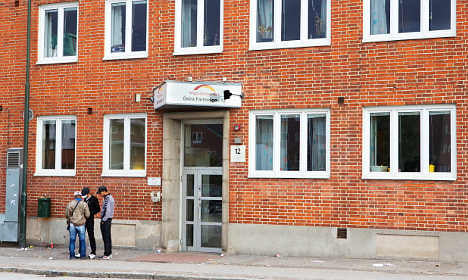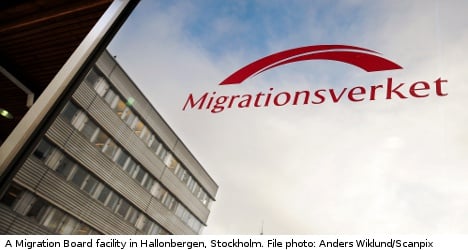In a bribery case that first came to light in the summer of 2012, three men were charged with selling Swedish residence permits, forged Bulgarian passports and other identity documents to refugees seeking shelter in Sweden.
The court gave one of the suspects a three-year prison sentence for taking bribes and helping to forge documents.
The 53-year-old ex-case officer earned 450,000 kronor ($54,000) from taking bribes in seven separate cases, the court said.
A 56-year-old accomplice was jailed for a year and a half for forging passports and other forms of identification.
A second Migration Board case officer, a 47-year-old man, was cleared of the charges against him.
Investigators found that the asylum seekers, who hailed from Africa and the Middle East, were given forged Bulgarian passports which allowed them to remain in the European Union.
Some also paid the migration agency workers to obtain Swedish residency permits.
The false passports gave the asylum seekers the right to remain in Sweden based on the residency rights afforded all EU citizens.
Suspicions about the scheme emerged after an internal Migration Board investigation, prompting the agency to notify police.



 Please whitelist us to continue reading.
Please whitelist us to continue reading.